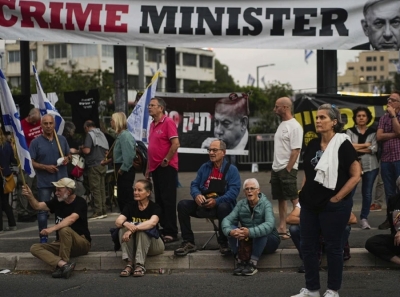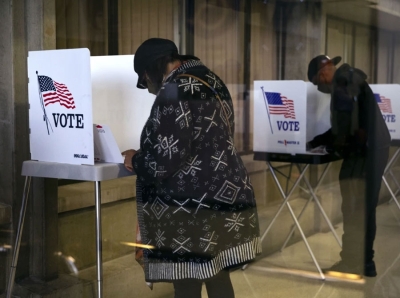Russia suspends grain deal - this time for good?
The Black Sea Grain Initiative to allow exports of Ukrainian grain, which has been extended several times in recent months, expired on Monday after Moscow refused to extend it again. The parties mediating between Ukraine and Russia — Turkey and the UN — want to continue negotiations. Europe’s press assesses the new situation.
Negotiations could still save the deal
La Stampa hopes for a compromise solution:
“Kremlin spokesman Dmitry Peskov said Moscow was ready to reactivate the agreement as soon as Russian ‘conditions’ were met. It is not entirely clear what these are. One important condition is certainly the re-admission of the Russian Agricultural Bank to the Swift system. The compromise offered by UN Secretary-General António Guterres involving the readmission of one of the bank’s subsidiaries was not sufficient. ... The markets probably assume that a solution will be found. This is one of the reasons why they reacted without much drama.”
The West must meet Russia half way
Not all the blame can be pinned on Russia, Der Standard comments:
“There are two sides to the deal. Free passage of grain ships from the Black Sea ports is one. The other is that the deal should also allow Russia to export agricultural products. But sanctions against banks, for example, make exports more difficult. Russia’s demand: the Russian Agricultural Bank should be exempted from the West’s sanctions so as to be able to do business. UN Secretary-General António Guterres called the grain agreement a ‘beacon of hope’. It must not go out. Russia must move forward. But the West must also lift sanctions, at least when it comes to food supplies.”
Wheat as a weapon of war
Putin is trying to pressure the West with the grain agreement, La Croix observes:
“The agreement contributes to Moscow’s propaganda that it is the West’s sanctions that are blocking exports. It is also a means for Putin to win over new partners in Africa and to make his signature at each renegotiation conditional on an ever-growing list of demands, some of which have nothing to do with the actual subject of the agreement. Since antiquity it has been known that whoever wields wheat wields diplomatic power. Moscow is now turning it into a weapon of war — handmade by Vladimir Putin’s cynicism.”
Moscow hoping to sow discord in EU
Putin could also be aiming to put Europe’s solidarity with Ukraine to the test, the Frankfurter Allgemeine Zeitung puts in:
“With the exports of Ukrainian agricultural products by land this spring, European farmers found themselves facing new and very undesirable competition, and Moscow was very aware of the rifts this caused in the EU. If Ukrainian grain can no longer be exported across the Black Sea, its only path to international markets will be via the EU. And despite farmers’ protests the EU can hardly seal itself off, because if it does it would smother one of Ukraine’s key economic sectors.”
Bad news but not a catastrophe
There’s no need to worry, says Polityka:
“The cancellation of the grain deal is bad news, the effects of which will also be felt in Poland. But the situation is not comparable with the first months of the war, the blockade of the Black Sea and the chaos which stoked fears of a global crisis with malnutrition and famine and fuelled inflation in food prices. ... Perhaps the agreement was necessary to buy Ukraine time to adapt as best it could to the new circumstances. The rest of the world is now also prepared. After this year’s harvest, global corn reserves — from Brazil, among other countries — are likely to be at their highest level in five years, whereas just before the war they were extremely low.”










